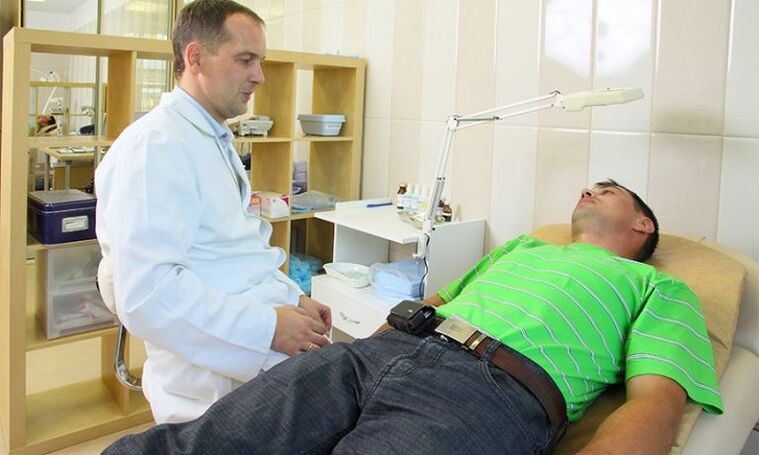Good results in the treatment of any disease are entirely up to the doctor, a fact that even the doctor himself will confirm. The same applies to prostatitis, as this complex male disease requires a correct diagnosis and, in the future, complex and effective treatments.

It's hard to believe it, but even the duration of treatment is entirely up to the doctor. Prostate inflammation manifests in many ways, from urinary problems to high fever. Which doctor should I contact for prostatitis if I have similar symptoms and I suspect this disorder?
Urologist - doctor who treats prostatitis
Therefore, if a man observes some problems in the genital area, and if there is a "problem" with the working of the urinary system, he needs to contact a doctor - a urologist. At the first appointment at the clinic, it is important to pay attention to the way the doctor works, as the duration and final outcome of the treatment is now up to him.
Also, if possible, it is advisable to consult several physicians in this specialty at the same time. But first, you need to do multiple studies in order to visit the urologist's office and get ready-to-go results.
How do urologists diagnose prostatitis?
The first thing a urologist does is the medical history. In other words, the doctor has a conversation with the patient in which he clarifies some questions about his personal life, including his intimate relationships, and asks in detail about all complaints and symptoms.
Further examination of the patient is required. Palpation is a way of examining a patient, during which the doctor determines the size, consistency, and tenderness of the prostate. Based on this, a urologist can make an initial diagnosis of the presence of prostatitis.
To confirm the diagnosis, doctors prescribe a series of studies. Blood and urine tests are mandatory, in addition to that, prostate secrets are often required to determine the number of white blood cells, amyloid bodies, and lecithin granules.
Analysis of urethral secretions will help determine whether glandular inflammation is affecting the urethra. To do this, a smear is performed using a special probe with a tampon that is inserted directly into the urethra.
To determine the nature of prostatitis, blood cultures are performed if an infectious etiology is suspected. It will help identify a group of pathogenic microorganisms that have colonized the human body.
Depending on the extent to which a doctor performs a thorough examination, and the number of examinations he prescribes, it can be concluded which doctor should be contacted for prostatitis - contact the urologist at the polyclinic at the registered location, or contact who works at another institution. . .
What other doctors are involved in the treatment of prostatitis?
It is well known which doctor to contact for acute or chronic prostatitis, but you also need to know that not only urologists have to meet with patients.

Often in the treatment of prostate inflammation, physical therapy that affects the inflammatory process of the organ is prescribed. Therefore, for procedures recommended by a urologist, patients will meet with a physical therapist.
These programs include:
- bath;
- electrophoresis;
- magnetic field;
- Ultrasound;
- Galvanized;
- Phototherapy;
- induction heat;
- microwave therapy;
- Laser Treatment.
If you don't take steps to strengthen your immune system, there can be no effective treatment options. This means that the other doctor involved in the treatment of prostatitis is an immunologist.
By the way, the question of which doctor to see for chronic prostatitis can also be answered by an immunologist, but you must speak to a urologist and perform blood and urine tests for the patient.
This form of prostate inflammation requires the immune system to function correctly and without failure, and only an immunologist can prescribe the right medication.
Problems in the genital area, especially chronic prostatitis, often have a detrimental effect on a man's psyche. For him, the inability to have a full sex life was like the end of the world. It can be complex, stressful, angry and deeply depressed.

A psychotherapist usually not only talks to the patient, but also prescribes sedatives to help him cope with the depressive state and adjust treatment.
Psychotherapists play a special role in the treatment of prostatitis because it will come faster if the patient regains self-confidence and believes in recovery.
If the clinic does not have a urologist, but does have an andrologist, you can contact him. He specializes in male diseases, including prostate inflammation.

























